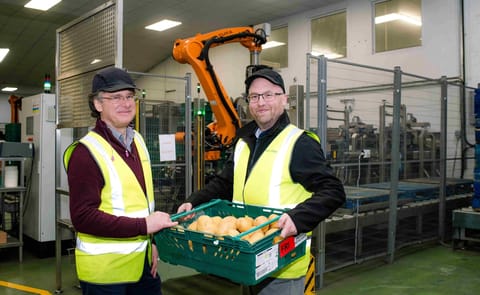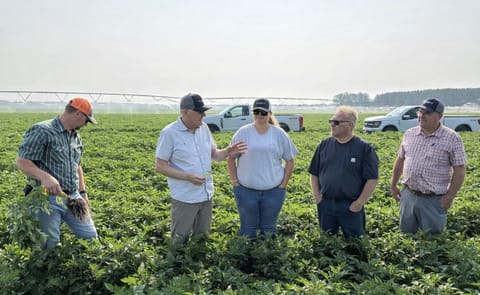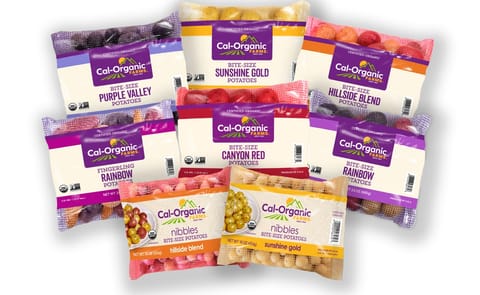Purple potatoes are typically high in bioactive compounds such as anthocyanins, phenols and carotenoids
Solapas principales
Neiker Tecnalia to start field trial of potato varieties with benefits

The potato is not only a basic food item and one of the main food crops worldwide, it contains a huge variety of minerals and bio active compounds with potentially beneficial effects.
Greater awareness about the importance of consuming these bioactive compounds (anthocyanins, phenols and total carotenoids) and the growing interest in the development of new products with specific attractive properties, have led to the appearance of different initiatives to genetically enhance the potato.
New varieties with a high pigment content have been developed recently. They are therapeutically very effective, above all in terms of antioxidant activity, and have a dual function: firstly, they are beneficial for health, and secondly, these pigments provide a deep purple or red colour, which makes them very attractive for the consumer. This offers new opportunities with respect to marketing and functional foods.
Among the compounds most studied from the perspective of genetic enhancement are, firstly, chlorogenic acid, owing to its implications for human health and its functions in defending the plant against pathogens, and secondly, the group of carotenoids. Apart from being associated with a deep yellow colour, some of the majority carotenoids in the potato are considered to be of prime importance for eye health and in lowering the risk of developing age-related macular degeneration.
The concentration, distribution and composition relating to each of the compounds in the potato are also heavily influenced by environmental factors, such as crop management, climate, soil, incidence of pests and diseases, harvesting time, mechanical damage, storage time and conditions.
The research that NEIKER-Tecnalia has been conducting since 2014 aims to obtain varieties with high levels of bioactive compounds that benefit health (anthocyanins, phenols and total carotenoids), an antioxidant capacity, and adapted to the growing conditions of Spain. To do this, initially the research was started with a series of red and purple flesh potato varieties with low adaptation and yield. Crossbreeding was started in order to obtain optimum varieties in terms of yield as well as nutrition and marketing.
Set to take place throughout this year are comparative agronomic trials as well as the multiplication of the most promising clones that will shortly make up new varieties to be developed and marketed in due course.
NEIKER highlights the importance of having clones like the ones obtained.
“For producers it is interesting to have purple potato varieties that adapt to a broad range of climate conditions.”
“These materials also contain natural antioxidant compounds, which are attractive from the nutritional and visual point of view for professionals in the world of catering and also for end consumers.”











